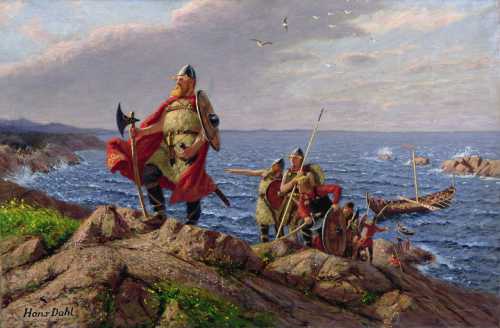the Riddle of origin of the ancient people, from our readers

Cimmerians - the mysterious people which are mentioned in Ancient Greek and drevnevostochny sources take certain place in the history today.
Expansion of Cimmerians in the western part of Asia Minor lasted longer. It fell on time of board in Lydia of the tsar Ardis II - the first in the history of the statesman who began stamping of a coin of a certain weight and test. Ardis II from 678 to 644 BC was a co-governor of the father Giges, and later till 629 reigned independently. Just during this period Cimmerians attacked its state and seized its capital of Sardy. The imperial army managed to hold only a city acropolis. On east sources, Giges fell at Sarda's protection. Cimmerians managed in Lydia while the son Ardis Sadiatta (629-617) did not manage to expel them from the country. Soon after that Cimmerians completely disappeared from the historical horizon.
For example, the first Slavs bear a name of vened at antique authors and at the same time where Venice was founded later and also in the west of Gallia (France) there lived tribes of venet. The academician V.V. Sedov claimed that venetam (venedam) yet not divided Central European community from which Italians, Celts, Germans, Balts and Slavs were allocated subsequently was called (the last longer than others kept this ancient name); and veneta of the North of Italy and Gallia were evicted persons from this area too. In the same way the nevra mentioned by Herodotus in the west of Scythia could be related to the Celtic tribe nerviyev, or their self-name developed from one root (by the way, both that and others worshipped snakes and practiced a ritual oborotnichestvo).
Cimmerians were allocated during disintegration of the so-called srubny archaeological culture existing in the II millennium BC in a steppe strip from the Urals to Danube. In the "Odyssey" created in the 8th century BC the description of acquaintance of ancient Greeks to these people which live on an extreme border of the manned earth flashes. To Greeks of times of "Odyssey" it had to seem quite so.












